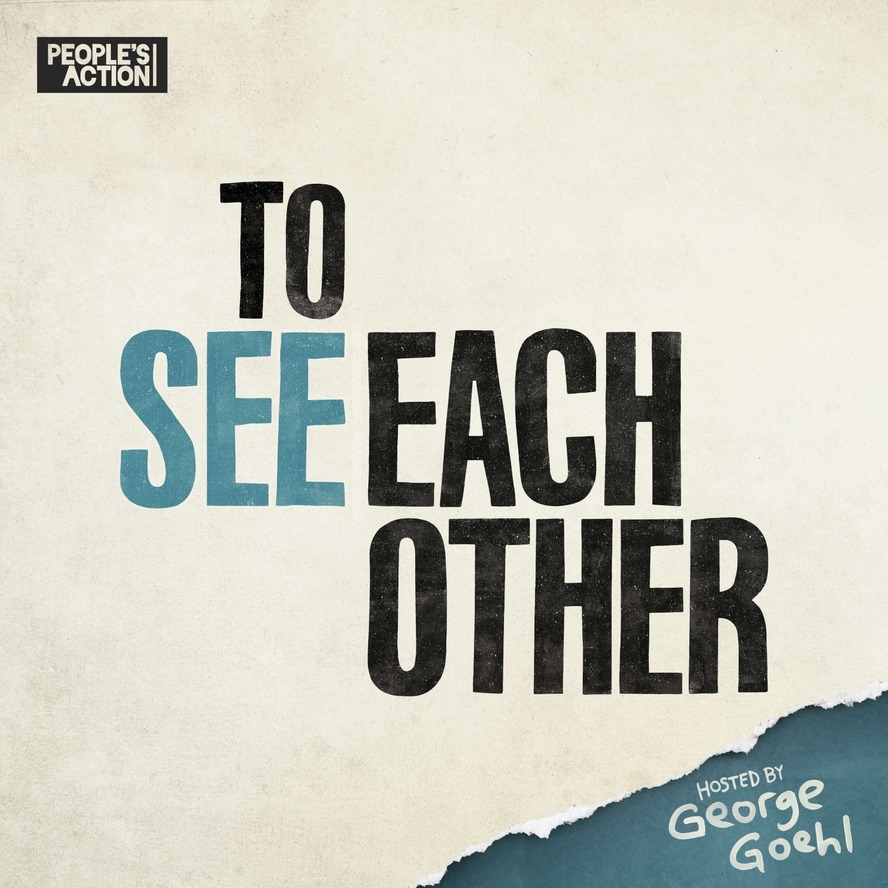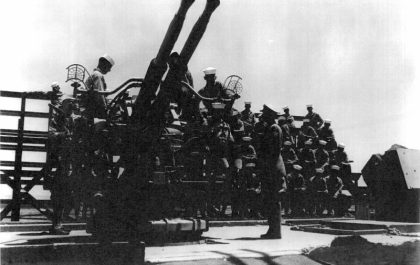
A podcast series titled To See Each Other focuses on the activities of politically progressive organizations throughout the country that were absolutely floored by the election of Donald Trump in 2016.
Sponsored by an umbrella group known as People’s Action, the overriding theme of these local and state organizations is to directly engage with voters in so-called Trump country; not with arguments, but with compassion, understanding, and listening in a strategic method referred to as the Deep Canvas. Literally going door to door, these organizers are attempting to replace the exchange of media-driven political chants in an effort “to create shared understanding grounded in actual lived experience without judgment.” Simply enough, Deep Canvas conversations begin with, “How are you doing?” or “What are your hopes and dreams?” or “What are you most worried about?”
The great revelation of those participating in the Deep Canvas is that conversations that begin this way are much more likely to move forward respectfully.
The original purpose of People’s Action was to undo the verdict of 2016 by influencing the recent decision in 2020. Well, the time for that task has come and gone. What remains, however, is a gravely divided country in need of some measure of reconciliation. Despite efforts from the other side to castigate progressive ideals, it is only on the left where one can find a persistent message of national unity. Sure, some on that side would like to lock “him” up. Yet, to pursue retribution can only serve to grow the chasm that already seems so insurmountable.
Interestingly, in a movement dedicated to healthy and productive conversations, these progressive activists are not searching for political compromise. People’s Action has an agenda. They are attempting to promote the notion that progressive policies address the very real obstacles faced by those across the political spectrum. Once the personal attacks and divisive language are removed, we begin to see that many of us are struggling against the same institutionalized forces that favor one class of people over another. If Trump’s five-year rhetorical war against imaginary enemies of the state has taught us anything, it is that those who fancy themselves as modern conservatives— although Trump has clouded what this even means—are expressing many of the same grievances that have been emanating from the left for decades.
An early episode of To See Each Other focuses on the revelations of a group called Michigan United. Once hailed as the “cradle of the labor movement” the past 40 years have transformed Michigan. In a state that once defined the essence of working-class America as middle-class America, unions no longer speak with the clout they once brought to the bargaining table. Factories which once employed millions have been shut down, many of them rebuilt overseas as corporations do what they are supposed to do, increase profits by minimizing costs. The ugly result is that once-vibrant communities are populated with people struggling to figure out what in the hell happened.
As similar opportunities in Michigan and across the country dried up, the political right took control of the message. Rather than identifying the causes of economic decline for what they were—technological automation and corporations focused on the bottom line—conservative media served up easily exploitable scapegoats.
To wit, if you are convinced that immigrants are responsible for your troubles, “Build That Wall” doesn’t seem so outrageous. However, if you come to realize that recent arrivals to your community—and non-white people in general—are struggling over the same issues as you are, cooperation and concerted activism have the potential to overwhelm the chaos.
For a clear-thinking person—unfazed by Sean, Laura, and Tucker—progressive policies make good human sense. While critics on the right try to associate progressivism with all of the horrible intent they purport to see on the left, modern progressives simply strive to include the improvement of the human condition into the economic equation.
Modern progressive ideas reveal a movement attuned to improving the quality of life; strong support for organized labor and practical environmental polices, opposition to oppression and discrimination, the maintenance of a public sphere free from the influences wealth inequalities, transparency and accountability in government, and solidarity borne of protecting the true spirit of democracy.
The Deep Canvas provides the opportunity to engage in this conversation through lived experiences rather than as a hyperbolic byproduct of political theater. However, one of the most significant revelations to arise out of the People’s Action campaign is that Trump supporters are not a monolithic bunch.
Assuming that the crude and profane enthusiasm found at a Trump rally fully explains the Trump phenomenon is a mistake. For instance, most of my Trump friends are disgusted with much of the president’s behavior and they typically express their support for him by saying things like, “The Supreme Court, Jimmy! The Second Amendment Jimmy! My 401(k), Jimmy!” When the conversation turns to the trashy language of a Trump T-shirt, they tend to change the subject.
My point here is that Trump has struck a nerve with a lot of different people with a lot of different complaints and People’s Action is tapping into that diversity.
Some of these folks are a bit less inclined to cooperate with a progressive on their porch than others. Indeed, George Goehl, an activist and the podcast’s host, reported that as he rang doorbells on a single street, “Sean Hannity answered the door, five doors in a row.”
However, in several instances, the Deep Canvas broke through. In Iowa, there are 26 million hogs whose massive and unregulated waste is polluting the water. The agriculturally diverse and sustainable family farm is nearly non-existent. The reality is that these communities have been destroyed by federal agricultural policies that have promoted large-scale commercial agriculture. Once the culprit is identified, progressive policy suggestions can more easily inform the long-standing Midwestern sense of justice and fair play.
In New Jersey, a largely conservative community along the Jersey shore was decimated by Hurricane Sandy. The measure of cooperation and community that helped recovery efforts brought this small community together; a personal reminder that America’s greatness arises when we face challenges together.
With that new-found sense of community struggle in the face of shared troubles, progressive policies suddenly no longer seem so radical; that once the chanting subsides, a space opens up where it is once again safe to talk with one another.




